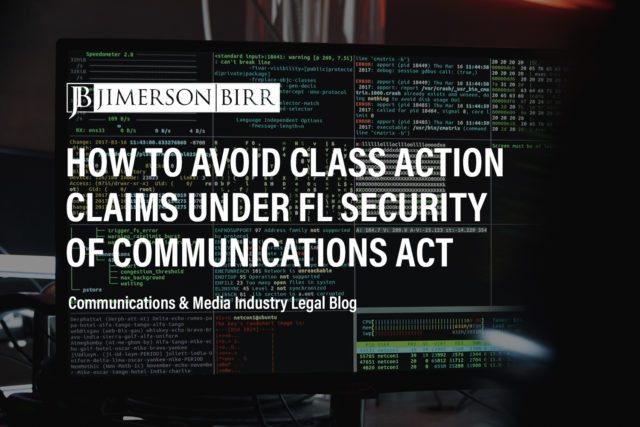How do FOIA, public records, and open meeting laws affect media companies?
Media access through FOIA (Freedom of Information Act), public records, and open meeting laws plays a crucial role in shaping the operations of communications and media companies in Florida.
These laws grant journalists, media organizations, and the public the right to access government records, attend governmental meetings, and obtain information relevant to public affairs. For communications and media companies, this access is essential for gathering news, conducting investigative journalism, and holding government entities accountable.
By leveraging FOIA requests, media outlets can obtain documents and data that shed light on government activities, policies, and decisions. Public records laws ensure transparency in government operations by allowing journalists and citizens to access documents, reports, and communications created or maintained by public agencies.
Open meeting laws require government meetings to be conducted transparently, allowing journalists and the public to observe and report on the decision-making processes of elected officials and government bodies.
However, challenges may arise for communications and media companies when government agencies deny or delay access to records, withhold information citing exemptions, or conduct meetings in violation of open meeting laws. These obstacles can hinder journalists’ ability to report accurately, impede investigative journalism, and undermine the public’s right to know.
Need help regarding FOIA, public records, or open meeting laws? Schedule your consultation today with a top media attorney.
In Florida, which laws and regulations apply to FOIA, public records, and open meeting laws?
- Florida’s Public Records Law (Chapter 119, Florida Statutes): This law grants the public the right to access records maintained by state and local government agencies, subject to certain exemptions for confidential or sensitive information.
- Florida’s Open Meetings Law (Chapter 286, Florida Statutes): This statute requires government meetings to be open to the public, with limited exceptions for certain deliberative or confidential matters.
- Federal Freedom of Information Act (FOIA): While not specific to Florida, FOIA grants individuals the right to request access to federal agency records, subject to exemptions for classified, confidential, or sensitive information.
- Florida Constitution, Article I, Section 24: This provision guarantees the public’s right to access government records and meetings, emphasizing transparency and accountability in government operations.
What are common issues regarding FOIA, public records, and open meeting laws that lead to litigation?
The following issues are among the most common in actions regarding FOIA, public records, and open meeting laws:
- Denial of Access: Government agencies may improperly deny access to public records or meetings, citing exemptions or procedural barriers.
- Redaction Disputes: Disagreements may arise over the extent of permissible redactions in public records, leading to disputes regarding the disclosure of information.
- Delay Tactics: Some agencies may intentionally delay responses to public records requests or schedule meetings at inconvenient times to hinder media access.
- Inadequate Record Keeping: Poor record-keeping practices by government agencies may result in challenges accessing or retrieving requested information.
- Violation of Open Meeting Laws: Government bodies may violate open meeting laws by conducting closed-door sessions or failing to provide proper notice of meetings, triggering litigation over transparency violations.
- Excessive Fees: Exorbitant fees charged for public records requests may pose financial barriers to media organizations seeking access to information, prompting legal challenges.
We are value-based attorneys at Jimerson Birr, which means we look at each action with our clients from the point of view of costs and benefits while reducing liability. Then, based on our client’s objectives, we chart a path to seek appropriate remedies.
To determine whether your unique situation may necessitate litigation, please contact our office to set up your initial consultation.
What steps should businesses take to minimize the risk of litigation over FOIA, public records, and open meeting laws?
To minimize the risk of litigation over media access through FOIA, public records, and open meeting laws, businesses can implement the following strategies:
- Stay Informed: Regularly review relevant laws, regulations, and court decisions to understand rights and obligations regarding media access.
- Establish Protocols: Develop internal policies and procedures for handling public records requests and ensuring compliance with open meeting laws.
- Maintain Transparency: Adopt transparent practices in record-keeping and decision-making processes to facilitate media access and minimize disputes.
- Train Staff: Provide training to employees on their responsibilities regarding media access laws and the proper handling of public records requests.
- Engage Proactively: Foster positive relationships with media outlets and respond promptly and cooperatively to public records requests to mitigate conflicts.
- Seek Legal Counsel: Consult with legal experts to address compliance issues, respond to disputes, and navigate potential litigation effectively.
- Document Everything: Maintain detailed records of public records requests, responses, and interactions with media organizations to support compliance efforts and defend against legal challenges.
Frequently Asked Questions
Can agencies charge fees for providing public records?
Yes, businesses can charge reasonable fees for the duplication and production of public records, but excessive fees may be subject to challenge.
Are there any exemptions to public records laws?
Yes, public records laws include exemptions for certain types of information, such as personal privacy, ongoing investigations, and trade secrets.
Can businesses request redactions in public records?
Yes, businesses can request redactions of sensitive or confidential information in public records, but the extent of permissible redactions may vary depending on applicable laws and regulations.
Have more questions about a FOIA, public records, or open meeting laws-related situation?
Crucially, this overview of FOIA, public records, and open meeting laws does not begin to cover all the laws implicated by this issue or the factors that may compel the application of such laws. Every case is unique, and the laws can produce different outcomes depending on the individual circumstances.
Jimerson Birr attorneys guide our clients to help make informed decisions while ensuring their rights are respected and protected. Our lawyers are highly trained and experienced in the nuances of the law, so they can accurately interpret statutes and case law and holistically prepare individuals or companies for their legal endeavors. Through this intense personal investment and advocacy, our lawyers will help resolve the issue’s complicated legal problems efficiently and effectively.
Having a Jimerson Birr attorney on your side means securing a team of seasoned, multi-dimensional, cross-functional legal professionals. Whether it is a transaction, an operational issue, a regulatory challenge, or a contested legal predicament that may require court intervention, we remain tireless advocates at every step. Being a value-added law firm means putting the client at the forefront of everything we do. We use our experience to help our clients navigate even the most complex problems and come out the other side triumphant.
If you want to understand your case, the merits of your claim or defense, potential monetary awards, or the amount of exposure you face, you should speak with a qualified Jimerson Birr lawyer. Our experienced team of attorneys is here to help. Call Jimerson Birr at (904) 389-0050 or use the contact form to schedule a consultation.

We live by our 7 Superior Service Commitments
- Conferring Client-Defined Value
- Efficient and Cost-Effective
- Accessibility
- Delivering an Experience While Delivering Results
- Meaningful and Enduring Partnership
- Exceptional Communication Based Upon Listening
- Accountability to Goals











